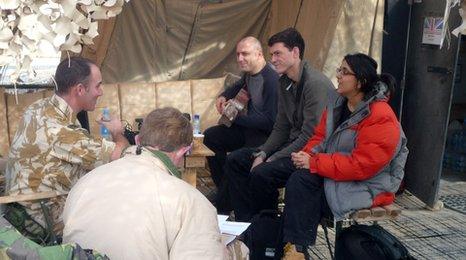Will the US troop surge win the Afghan war?
- Published
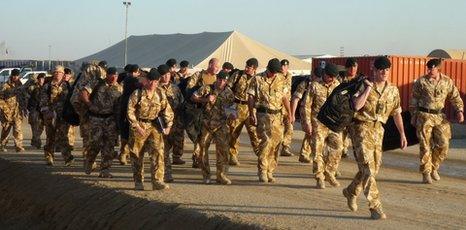
British troops at Camp Bastion
There is plenty of evidence in Afghanistan of British and American troop reinforcements to support President Obama's "surge" against the Taliban. Local police and army units are being trained and areas previously held by the insurgents are being cleared. 3rd Battalion, The Rifles are involved in one such operation around the dangerous town of Sangin at the moment - but can the surge strategy work? These are five things that could hinder the plan:
Will Obama's 'exit strategy' work?
Obama's critics are already saying that giving the Taliban notice of an 'exit strategy' starting in July 2011 was a mistake. It could encourage the insurgents to keep going with the knowledge that American and British troops will be going home.
However the US Defence Secretary Robert Gates said the summer 2011 timetable was not an 'exit strategy' and the numbers leaving would be small.
He also said the movement of troops will depend on how much progress is being made training the Afghan National Army and police, as well as whether the country's various provinces become more stable.
However if the coalition cannot point to success either in training or security by this time the critics could accuse Obama of failure.
Can the Afghan army and police take control?
Obama's plan depends on training local police and army units, but so far eight years of training has produced patchy results with the police still viewed with suspicion by many.
Pay is also an issue - a Taliban 'gun for hire' can earn more for his family than a policeman being paid by the government in Kabul.
So how can the British and Americans train more police and soldiers quickly given the problems so far? Afghanistan is very tribal and the army is dominated by Tajiks who make up about 25% of the population, but troops from the troubled and mainly Pashtun Helmand Province are thin on the ground.
Will Afghan villagers support the troops?
The US counter insurgency plan relies on Pashtun villagers disliking and fearing the Taliban.
But what if the villagers would rather support their fellow tribesman in the Taliban than mainly white, foreigners and a government in far away Kabul that's seen as corrupt?
Government ministers are accused of corruption and this could undermine popular support for the surge and the plan behind it.
Can the president retain the support of the American people?
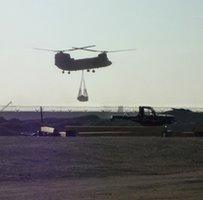
US troops in Afghanistan will reach 100,000 in total
With unemployment on the rise and a wobbly economy, the war in Afghanistan is not top of most Americans' list of worries.
So spending billions of dollars keeping American servicemen and women there could become more unpopular.
The US government may have to make a clear connection in people's minds between the Taliban and al-Qaeda and the attacks on 9/11, as well as the fear of another terrorist assault on the states, if they want to keep Americans on side.
But if the American death toll rises support could slip further, as it did during the Vietnam war in the 1960s and 70s.
Will Pakistan help?
Obama wants the government in Pakistan to help him destroy the Taliban, but historically Pakistan, with its many Pashtuns, has been closely linked to the Taliban.
Fighters stream across the border to reinforce the insurgency in Afghanistan.
The White House is asking the government in Islamabad, which is already under pressure at home, to risk greater unpopularity and more home-grown terrorism, by the Pakistani Taliban, in return for foreign aid.
- Published17 June 2010
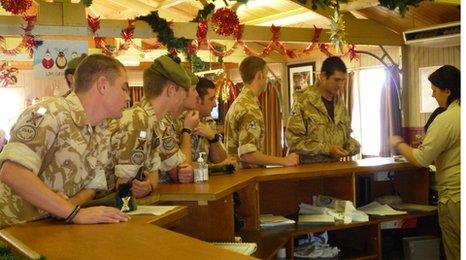
- Published17 June 2010
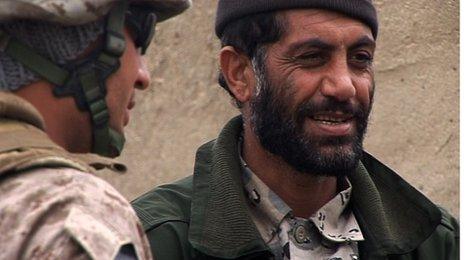
- Published17 June 2010
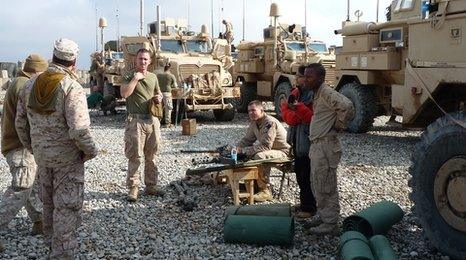
- Published11 December 2009
